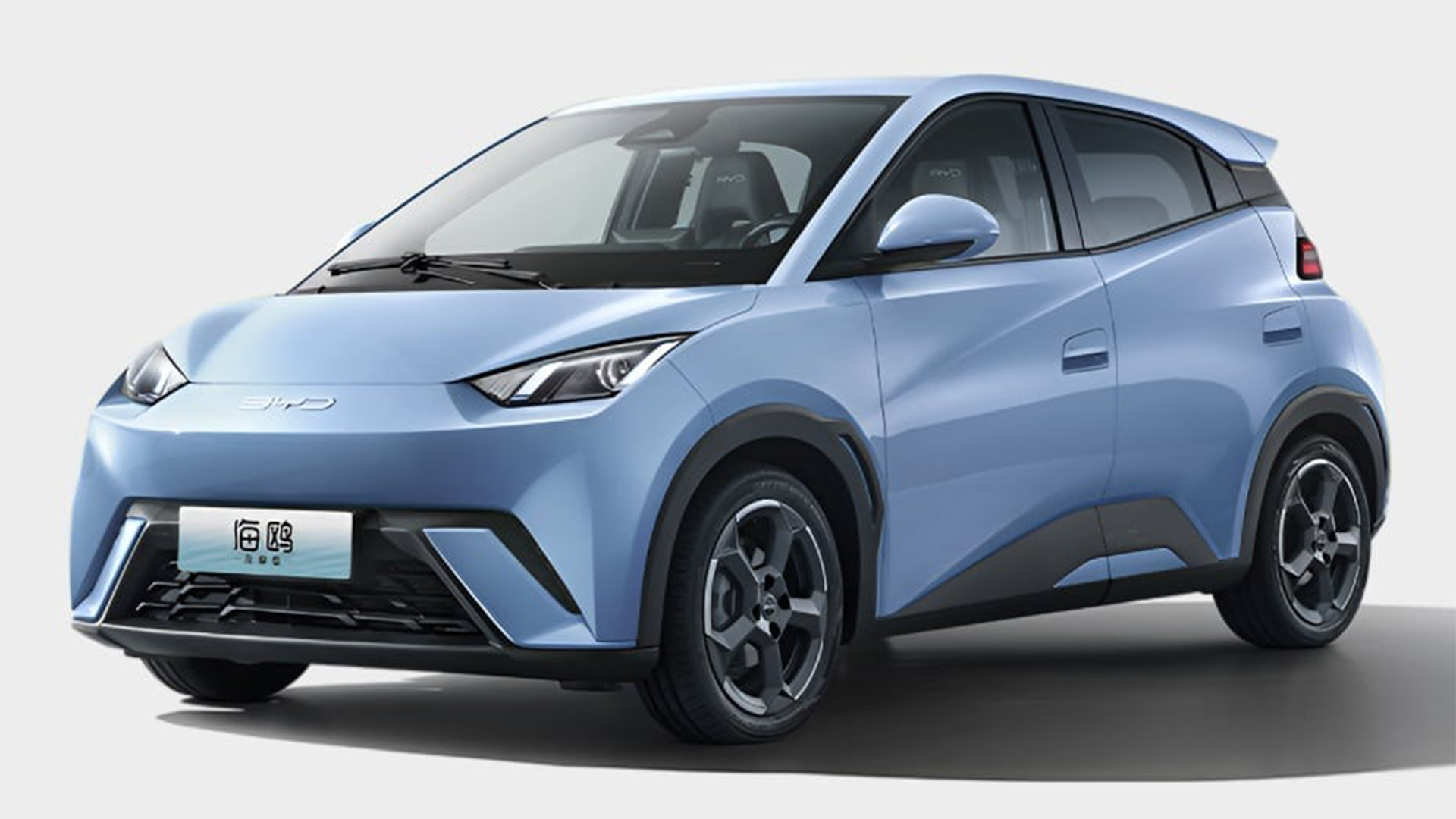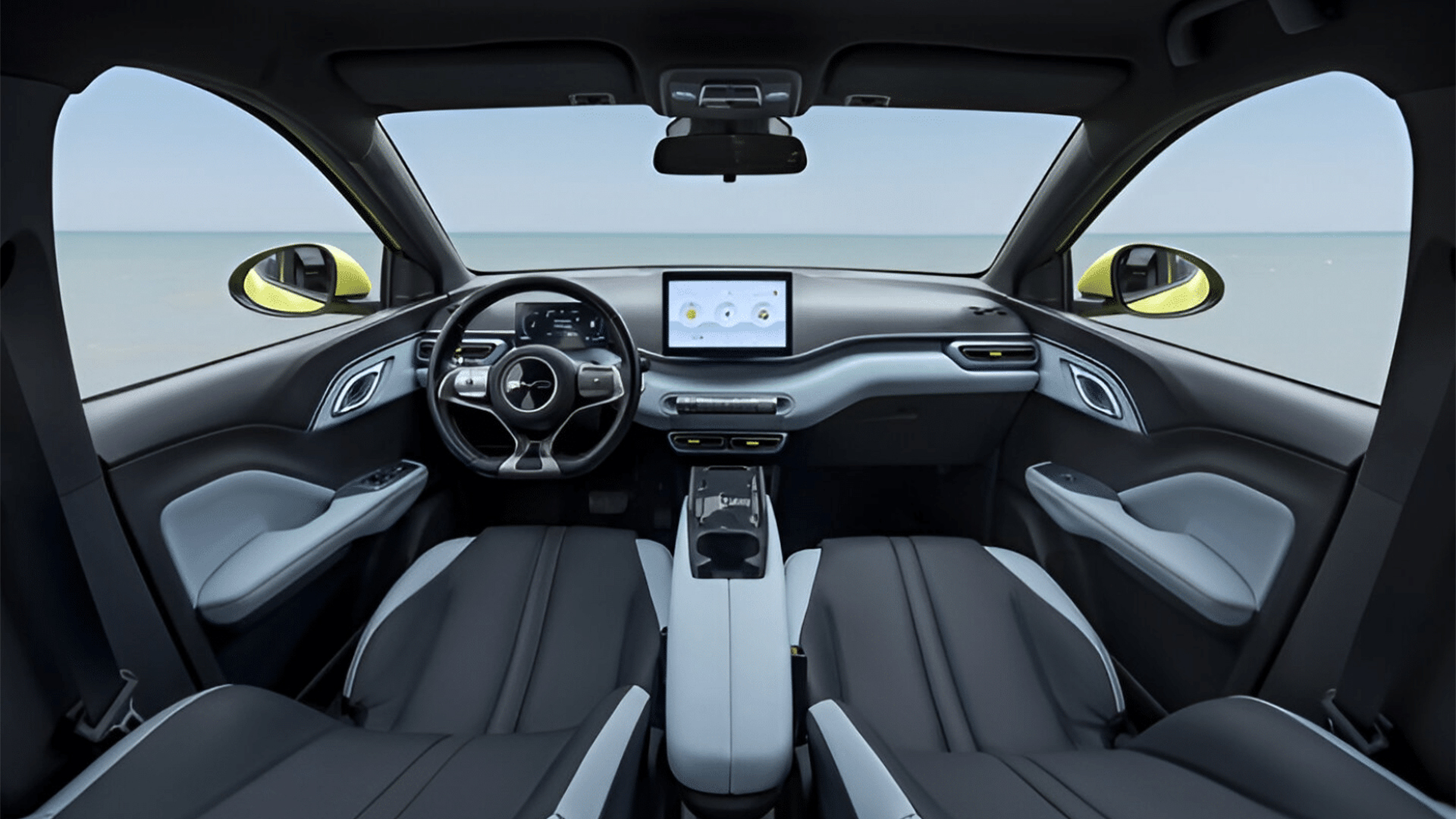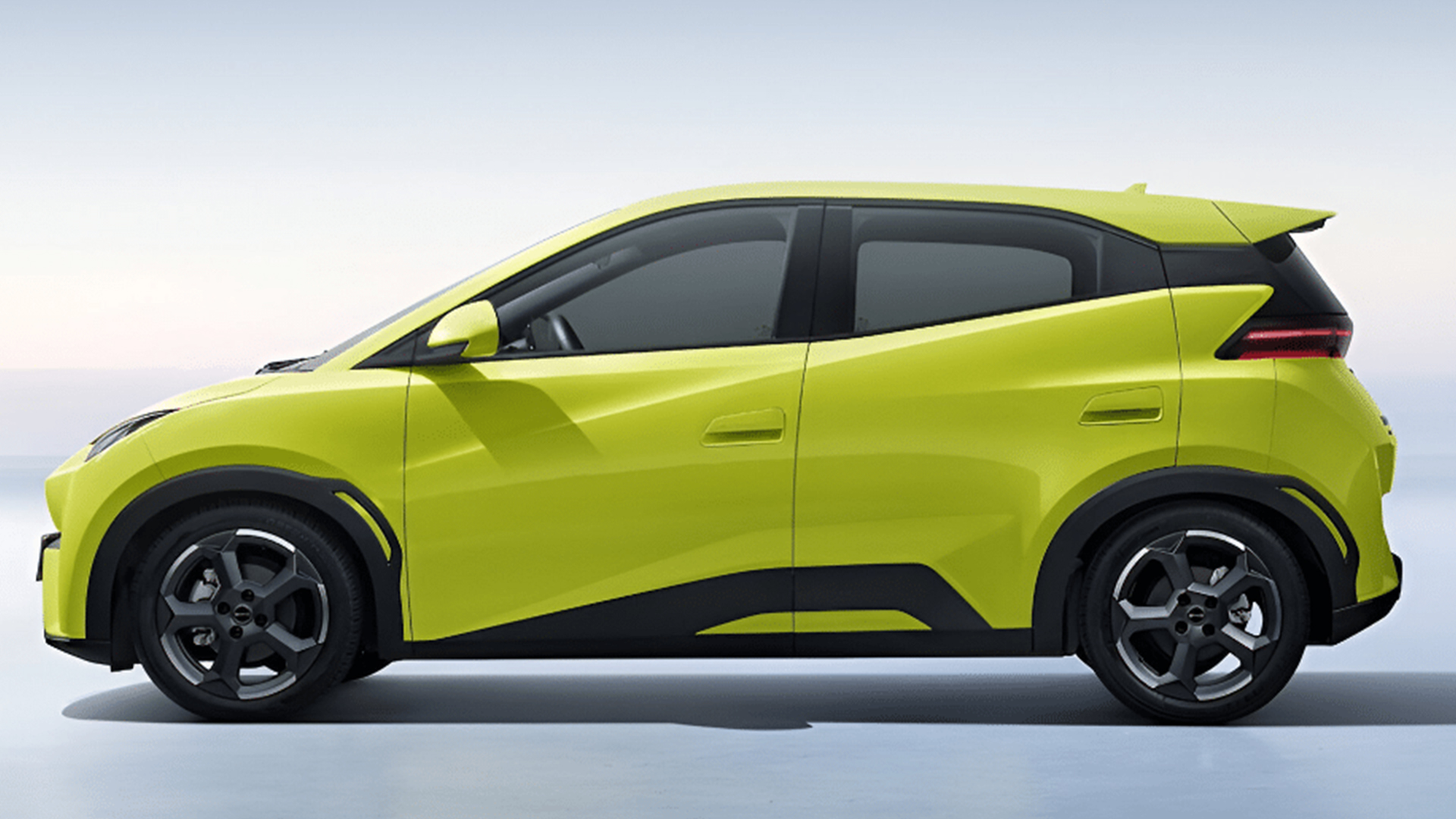
Chinese automotive giant BYD is fanning the flames of a brutal EV price war in its domestic market by further slashing the asking price of one its cheapest cars – the Seagull.
The recently announced Seagull Honor Edition now costs 69,800 yuan, which is around $9,700 / £7,600 / AUS$14,700, making it the cheapest electric vehicle in China at the time of writing.
The Seagull, as it is known in its home market, is also exported to South America, where it is labelled the Dolphin Mini in an attempt to simplify the range and increase brand recognition (the larger Dolphin is already a best-seller there).
Despite its exceptionally low sticker price, the Seagull offers a lot of bang for your buck, including 190 miles of range in even the most basic variants, increasing to 252 miles in the $12,000 Flying trim level.
Plus, it features a 10.1-inch infotainment system and styling that has earned it the nickname 'Lamborghini-mini' due to ex-Lambo designer Wolfgang Egger’s involvement in the sharp exterior styling.

There are also niceties, such as integrated Bluetooth phone pairing, NFC entry, four internal airbags, Electronic Stability Control and heated external mirrors – all conveniences that typically wouldn’t be expected at this price.
Offering 55 kW (73bhp) of power and 135 Nm of torque, the diminutive Seagull is also on a par with its petrol-powered counterparts, such as the one-litre Toyota Aygo X and other small city cars. In fact, BYD's recent price offensive is an attempt to create price parity between electric vehicles and gasoline-powered competition, with a view to eventually make the former cheaper and more desirable.
BYD recently launched the Seagull (known as the Dolphin Mini) in South America, where it is sold for 99,800 BRL – or around $20,000 / £16,000 / AUS$30,000, although it hasn’t confirmed whether its cut price Honor Edition will be sold anywhere else.
Tough trade

Despite its unwavering stronghold on the domestic market, BYD is facing resistance to its cars from many other parts of the world.
In the US, for example, the government is clamping down hard on vehicles imported from China, citing potential threats to national security as a reason, while the European Union is calling for similar measures to prevent an all-out price war with its established automakers.
Evidence of this sort of heated competition can be found in the bloody battle between Tesla and BYD. Earlier this year, Musk's company was forced to slash the cost of its Model Y across much of Europe following a reduction in price of both the Model 3 and Model Y in China. According to CNBC, Tesla’s move was in direct response to pricing set by its closest competitor, BYD, regarding its flagship Han sedan.
But while the Han is priced in line with Tesla’s best-selling Model Y, which is around 200,000 yuan (around $28,000 / £21,800 / AUS$42,300), BYD offers a greater all-electric model range that covers a vast price spectrum in the country.
Its latest move to undercut even the cheapest gasoline-powered cars will only help cement its leading position in the domestic sales charts, but as it expands overseas, BYD will also likely prove a massive hit in those countries that favor low-cost ,fuss-free electric motoring.
Currently, the likes of Renault and Volkswagen, and even Tesla, are busy working on small EV platforms in an attempt to prepare for an onslaught of cheap Chinese imports.
Many are targeting the €20,000 (around $17,000 / $21,500 / AUS$32,850) mark, but even that could be deemed as expensive when viewed alongside BYD's current aggressive pricing strategy.







